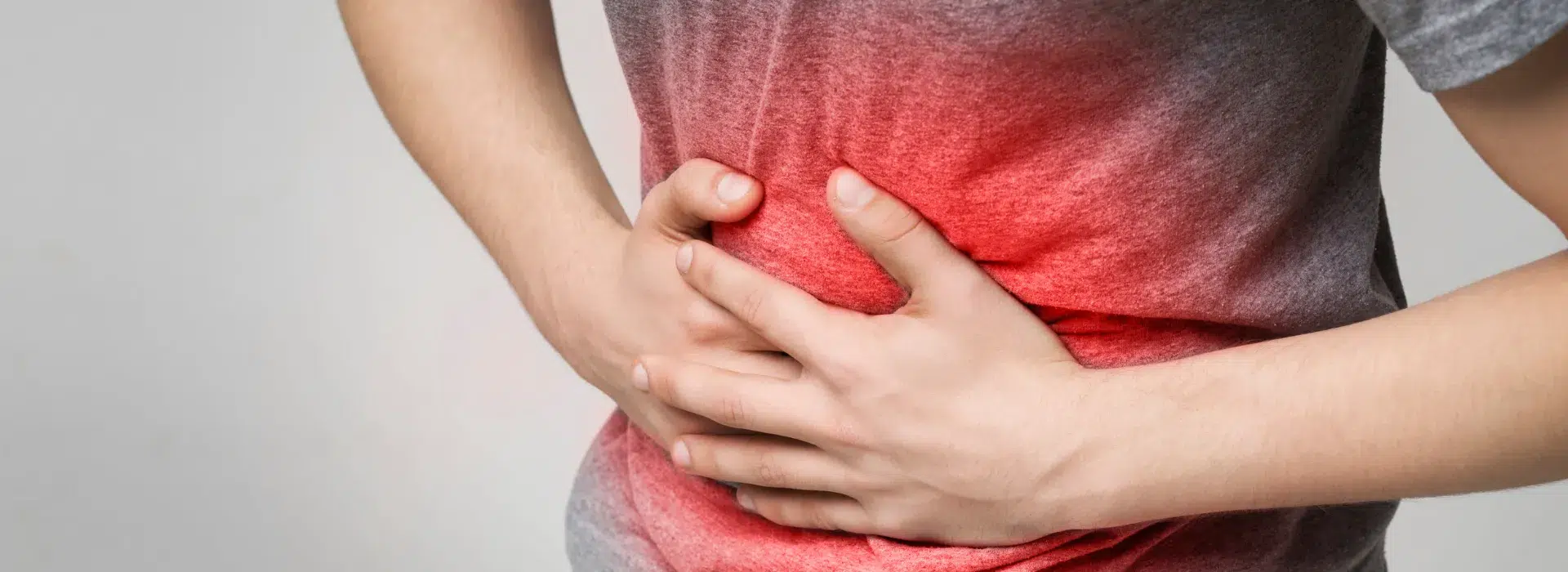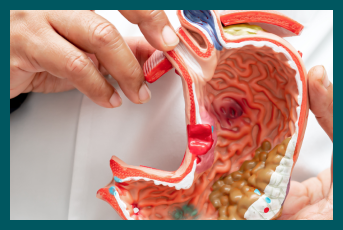15 Natural Home Remedies For Constipation to Ease its Symptoms
Written by Priyanka Agarwal, Writer at Hola Health Medically reviewed by Dr Nelson Lau, MBBS FRACGP, GP & Digital Health Specialist

Contents

Ever felt like your gut is enjoying a game of hide and seek with your happiness? Well, Constipation is a common digestive ailment affecting millions worldwide, marked by irregular bowel movements, difficulty passing stools, and uneasiness. According to a report by the National Library of Medicine1, constipation affects 24.0% of the Australian population. While over-the-counter medications are accessible, natural home remedies support to alleviate constipation. Let’s uncover the treasure trove of natural treatments to eliminate constipation woes and recapture the balance of your gut’s symphony!
What causes constipation?
Constipation can be influenced by several factors, including:- Dehydration- Not drinking enough water can lead to dry, hard stools that are difficult to pass.
- Low-fibre diet- Low consumption of fibre-rich foods can contribute to constipation.
- Lack of exercise - Inactive lifestyles can slow down digestion and bowel movements.
- Changes in daily routine- Disturbances in the usual routine, changes in diet, or travelling can affect bowel habits.
- Medications - Some medicines may cause constipation as a side effect.
- Ignoring the urge- Sometimes suppressing the natural urge to have a bowel movement can lead to constipation.
- Pregnancy- Hormonal changes during pregnancy can slow digestion and lead to constipation.
Home remedies to relieve constipation naturally
The following natural home remedies may help ease constipation. However, individual responses may vary, and it is important to consult a doctor if symptoms persist:- Boost your fibre intake: Fiber encourages bowel motions and softens faeces. Consume a diet rich in whole grains (oats, barley, brown rice), legumes (beans, lentils), fruits (apples, pears, berries), and vegetables (broccoli, spinach, carrots).
- Prunes, or prune juice: The natural laxative properties of prunes are widely recognised. They include sorbitol and fibre, which aid in promoting bowel motions and softening stools. Eat a few prunes or drink prune juice every day.
- Keep yourself hydrated: Drinking enough water keeps faeces soft and easy to pass. Try to drink eight glasses of water or more each day, depending on the weather and the amount of activity you engage in.
- Frequent exercise: Exercise facilitates the passage of stool through your digestive system by stimulating the muscles in your intestines. On most days of the week, try to get in at least 30 minutes of moderate activity.
- Good fats: Include foods high in good fats, such as nuts, seeds, and olive oil, in your diet. These fats facilitate the movement of faeces through the intestines by lubricating them.
- Probiotics: Beneficial microorganisms that can assist control of digestion are known as probiotics. Probiotics can be obtained through probiotic pills or foods like kefir, yoghurt, sauerkraut, and kimchi.
- Warm liquids: Warm liquids, such as warm water with lemon or herbal tea, might help ease constipation by encouraging bowel motions.
- Healthy habits: Preventing constipation may be achieved by developing regular bowel habits, such as scheduling a daily period for a bowel movement. Refer to healthy habits for women, men and teens.
- Magnesium: You can ease constipation by relaxing the muscles in your intestines with the use of magnesium supplements or meals high in minerals, such as whole grains, nuts, seeds, and leafy greens.
- Aloe vera juice: Aloe vera juice has ingredients that may act as a laxative to ease constipation. On an empty stomach, start the day with a little 1/4 cup of aloe vera juice. Use with caution and make sure the aloe vera juice you select is labelled only for internal usage.
- Ginger tea: Due to its inherent digestive qualities, ginger tea helps ease stomach pain and constipation. Steep fresh ginger slices in boiling water for several minutes to make ginger tea.
- Steer clear of trigger meals: For those who are at risk, some meals could aggravate constipation. Red meat, processed meals, dairy products, and refined grains are a few examples of them. Keep an eye on how your body responds to certain meals and think about cutting down on foods that seem to make you feel more constipated.
- Appropriate toilet posture: Using a tiny stool to elevate your feet or kneeling on the toilet will assist in straightening your rectum and facilitate better bowel movements.
- Control your stress: Stress can interfere with digestion and lead to constipation. Use stress-reduction methods to help you relax and have regular bowel movements, such as deep breathing, yoga, or meditation.
- Herbal remedies: Several plants, including fenugreek, cascara sagrada, and senna, have laxative qualities of their own and can be purchased as supplements. Before using herbal therapies, be cautious and get medical advice, especially if you have underlying medical concerns or are on medication.
What to avoid?
Avoiding particular foods and habits that might make constipation worse is beneficial when managing the disease. The following are some things you might want to stay away from:- Dairy items: Dairy items such as cheese, yoghurt, and milk might cause constipation in certain individuals. If you think dairy may be an issue for you, consider cutting back on or giving up these items for a while to see if it helps.
- Foods with low fibre: Foods with little fibre can either cause or exacerbate constipation. Refined grains such as white rice, white bread, and processed meals should be consumed in moderation.
- Red meat: Red meat can be more difficult to digest and may cause bowel motions to slow down, especially fatty portions like steak and bull. Think about choosing leaner protein sources such as fish, chicken, or plant-based proteins.
- Unripe bananas: Due to their greater starch level, unripe bananas may make some people's constipation worse, while ripe bananas might help relieve it because of their high fibre content.
- Fried and fatty foods: Foods heavy in fat, including fatty meats, greasy snacks, and fried foods, may hinder digestion and cause constipation. Try to eat fewer of these items.
- Alcohol and caffeine: Both substances have the potential to dehydrate the body, which could worsen constipation. Reduce the consumption of alcohol, tea, coffee, and soda, especially if you're constipated.
- Sugary foods and drinks: By drawing water from the intestines and transferring it into the circulation, sugar-rich foods and beverages may increase constipation. Restrict your consumption of sweetened beverages, sweets, and sugary snacks.
- Processed meals: A lot of chemicals, preservatives, and other components included in processed meals might cause digestive problems and make you feel constipated. Hence, it is important to try to eat whole, minimally processed foods.
- Large meals: Consuming large meals might slow down the movement of food through your intestines and increase the pressure on your digestive system. Try having smaller, more frequent meals throughout the day as an alternative.
- Ignoring the need to go: Constipation can develop over time because of suppressing the desire to go or holding in bowel movements. When you feel the desire to go to the bathroom, attempt to pay attention to your body's cues.
When to consult a doctor?
Although occasional constipation is common and generally resolves with simple lifestyle adjustments or natural home remedies, it’s essential to consult a online doctor if you have severe constipation. Symptoms requiring medical attention include abrupt onset of severe constipation, enduring abdominal pain, vomiting, bloating, constipation lasting for more than two weeks, unexpected weight loss, or rectal bleeding. Furthermore, suppose you have a medical history of gastrointestinal disorders such as inflammatory bowel syndrome (IBD), or irritable bowel syndrome (IBS), or you are suffering from constipation along with other alarming symptoms. In that case, it’s crucial to seek medical advice at the earliest. A doctor can conduct a comprehensive assessment and recommend appropriate treatment options to relieve constipation and boost gastrointestinal health.Can a telehealth appointment with an online doctor help with constipation?
Yes, a telehealth appointment with an online doctor can help with constipation. Telehealth is a convenient and effective way to receive medical care from a licensed physician from the comfort of your own home. Here are some of the benefits of using telehealth for constipation:- Convenience: No need to travel to a doctor's office, which can be especially helpful if you're feeling unwell.
- Privacy: You can discuss your symptoms with a doctor in a private and confidential setting.
- Affordability: Telehealth appointments are often more affordable than traditional in-person appointments.
Feeling sick and unsure why? Speak with a GP online in 15 minutes.
See a Doctor now
Available 24/7, across Australia.
Feeling sick and unsure why? Speak with a GP online in 15 minutes.
See a Doctor now
Available 24/7, across Australia.
Reference
National Library of Medicine - reference linkWhat we treat
- Cough
- Nausea & vomiting
- Fever
- Hayfever
- Fatigue
- Sore throat
- Acne
- Hair loss
- Gout
- Eczema
- Rosacea
- Sunburn
- UTI
- Erectile dysfunction
- Contraception
- Morning sickness
- Morning after pill
- Prostate health
- Anxiety
- Depression
- Stress
- Grief & loss
- Antidepressants
- Premature ejaculation
- Asthma
- Blood pressure
- Blood thinners
- Diabetes
- Cholesterol
- Migraines & headaches
- Allergies
- Body ache
- Heartburn & reflux
- Sleep disorder
- Pain relief
- Gastro
Related Articles
Disclaimer
This blog is for general informational purposes only and does not indicate that Hola Health provides all treatments or preventive measures mentioned. It is not intended to be a substitute for professional medical advice. Always seek the guidance of your doctor or other qualified health professional with any questions you may have regarding your health or a medical condition. For emergencies please immediately contact 000. Any medical topics discussed are intended to educate, not to imply availability through Hola Health.
 Facebook
Facebook  X
X  Copy Link
Copy Link



